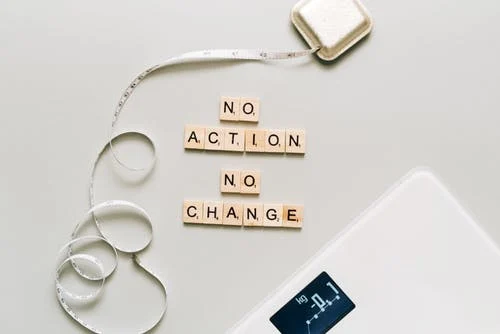
How to Win the War Against Obesity in Three Steps
“We must not constantly talk about tackling obesity and warning people about the negative consequences of obesity. Instead, we must be positive—positive about the fun and benefits to be had from healthy living, trying to get rid of people’s excuses for being obese by tackling the issue in a positive way.”—Andrew Lansley
Meet Agnes:
“It is not pleasant when you have to listen to snide and unkind remarks about your appearance. People think that you are a lazy person. They do not realize that obesity can have many causes.
“I believe in my case, the problem could partially be due to hereditary factors, since most in my family have a weight problem.”
Agnes has a point.
There are many reasons why some people gain weight.
Often, obesity results from inherited factors, combined with the environment and personal eating habits and inactivity.
But all is not lost.
You can win the war against obesity if you so desire.
In this article, I discuss the following:
- Symptoms
- Causes
- Susceptibility
- Consequences
- Prevention (in three steps + strategies for reaching your wellness goals)
Symptoms
How to Know If You’re Obese
According to the Mayo Clinic, you’re obese if you have a body mass index (BMI) over 30.
To figure out your BMI, multiply your weight in pounds by 705, divide the result by your height in inches, then divide that by your height in inches again. For example, if you weigh 200 pounds and are six feet tall, your BMI is 27 (200×705÷72÷72=27).
Or you can divide your weight in kilograms by your height in meters squared.
But you’ll find an excellent tool on Calculator.net where you plug in your age, gender, height, and weight and get instant results of your BMI and how much weight you should lose to be within a healthy range. https://www.calculator.net
Perhaps you’ll want to see a doctor for suggestions or confirmation of your status.
Causes
There’s a lot of research on human genes and obesity.
Many experts call obesity a disease, saying it is in the genes, is inherited, and that the body has a set point for a weight that may destine you to fatness.
But not all scientists agree on the theories of obesity.
According to one source:
“Sophisticated techniques are being used to identify genes that predispose people to weight gain and diseases like diabetes. In scientific parlance, 25 percent to 40 percent of the variability in population body weight can be explained by genes.
“But still 60 percent or more of the influence can be attributed to the environment.”
In other words, a significant factor in obesity is still a person’s lifestyle.
Overeating is a simple reason for obesity.
“Although there are genetic, behavioral, metabolic, and hormonal influences on body weight, obesity occurs when you take in more calories than you burn through exercise and normal daily activities. Your body stores these excess calories as fat.”
(Source: The Mayo Clinic Staff)
Susceptibility
Are you more or less likely to become obese?
Risk factors or susceptibility to obesity include the following:
- The genes you inherit from your parents and cultural norms. Often, obesity run in families. But not just because of your genes, but because family members sometimes share similar eating and activity habits.
- Unhealthy diet. High-calorie meals and fast food, not enough vegetables, fruit, sugared drinks, etc.
- Sedentary lifestyle. You sit too much. Not only would you gain weight, but prolonged sitting puts you in danger of several health risks: heart disease, type 2 diabetes, high blood pressure, deep vein thrombosis (DVT), kidney disease, and anxiety. You will burn calories through exercise and daily activities.
- Some medications. These medications include some antidepressants, diabetes, and antipsychotic drugs. You’ll need to compensate through more exercise and a better diet to avoid gaining weight.
- Social circle. Are your friends obese? They may influence you to eat more and develop obesity.
- Economic issues. Do you lack grocery stores in your neighborhood that give access to healthy foods? Or do you feel unsafe walking or jogging along your streets or in the park?
- Age. Obesity is associated with an increased risk of falling in older adults. According to a 2018 report by the World Health Organization (WHO), “Falls are the second leading cause of accidental or unintentional injury deaths worldwide. Adults older than 65 years of age suffer the greatest number of fatal falls.” Yet, WHO estimates obesity in ages 60 years and older at 37.5% in men and 39.4% in females. Because the amount of muscle mass in the body tends to decrease as we age, which leads to a decrease in metabolism, older adults need fewer calories. So, if the aged don’t consciously control what they eat and engage in more physical activities, they’ll gain weight.
- Stress. What happens when we’re stressed? We eat! And when we use food to relax or comfort us, it’s likely to be high-calorie, high-carbohydrate meals or snacks = weight gain.
- Lack of sleep. Your sleep habits—not getting enough or getting too much—may cause changes in hormones that, in turn, increase your appetite. You’ll gain weight if you eat foods high in calories or carbohydrates.
Consequences
According to the Centers for Disease Control and Prevention (CDC), obesity increases the potential to develop many severe health problems:
- COVID-19: Obesity and excess weight increase severe illness risk
- All causes of death (mortality)
- High blood pressure (Hypertension)
- High LDL cholesterol, low HDL cholesterol, or high levels of triglycerides (Dyslipidemia)
- Type 2 diabetes
- Coronary heart disease
- Stroke
- Gallbladder disease
- Osteoarthritis (a breakdown of cartilage and bone within a joint)
- Sleep apnea and breathing problems
- Many types of cancer
- Low quality of life
- Mental illnesses such as clinical depression, anxiety, and other mental disorders
- Body pain and difficulty with physical functioning
- Digestive problems (heartburn, gallbladder disease, and liver problems)
- Gynecological and sexual issues (infertility and irregular periods in women; erectile dysfunction in men)
Also, as listed above, your quality of life diminishes.
Issues related to your quality of life include:
- Discrimination (won’t get hired)
- Depression (unhappiness, feelings of hopelessness)
- Shame and guilt (lower self-esteem)
- Social isolation (we’ve all heard the “fat” jokes)
- Lower work achievement (no motivation; lower pay)
Prevention
There are three steps to prevent weight gain:
Step 1: Daily Exercise
Here are the best eight exercises for weight loss:
- Walking
- Jogging or running (or jump roping)
- Cycling
- Weight training
- Interval training
- Swimming
- Yoga
- Pilates
(Source: www.healthline.com)
You will also find numerous weight-loss workout ideas on www.Youtube.com.
Step 2: A Healthy Diet
My No. 1 Recommendation: The Mayo Clinic Diet
www.diet.mayoclinic.org/diet/home
You’ll find personalized meal plans, recipes, and motivational lifestyle tips on this site.
You will also be able to track your progress with interactive tools, such as the Mayo Clinic iPhone app, food & fitness journals, plus a personalized exercise program.
*Note:
Individuals should consult with their physician before adopting any exercise or diet regimen.
Step 3: A Long-Term Commitment
It’s all about planning, the third and final step to winning the fight against obesity.
When you have a lot of weight to lose, you must play a long game.
You will face challenges along the way.
Here are nine tips to help you stay on track:
- Set realistic weight loss goals. One or two pounds a week.
- Use an app. As I noted above, the iPhone used at Mayo Clinic’s weight loss program can help you be honest with yourself by allowing you to track what you eat and how much. But there are also other apps, such as My Fitness Pal, to help you track fitness goals.
- Eat a high-protein breakfast. You are more likely to maintain your blood sugar levels and not feel as hungry at lunch.
- Drink plenty of water. The benefits are many. Water is essential to our physical and emotional well-being and our appearance. Water is vital for transporting nutrients within our bodies and for removing waste.
- Eat more fruits and vegetables. You will not feel as hungry because nutrient-rich foods will give you a feeling of fulness.
- Enjoy your favorite foods. Buy one cookie instead of a box.
- Have a plan before eating out. Read the menu before you go, have a healthy snack, and drink water before and during your meal.
- Monitor your weight regularly. I weigh myself daily, but most experts recommend considering it at least once a week. That way, you can tell whether your efforts are working and help you notice small weight gains before they become big problems.
- Get a buddy to join you. It can be tough to go it alone.
Finally, be realistic. Breaking habits and improving your diet is not easy.
According to WebMD.com, you will start to see health benefits when you’ve lost 5%-10% of your body weight.
Note what a few had to say after reaching their weight-loss goals:
Julie: “My doctor put me on a strict exercise regimen and controlled portions of meals. I began to walk three miles nonstop every day, and I got up early each morning to exercise.
“I had to reeducate myself regarding my eating and drinking habits. I eliminated junk food and cut back on bread and sodas, replacing them with more fruit and vegetables. Now my weight is down from 206 pounds to 164 pounds.
“I still have several pounds to go, but I couldn’t be happier!”
Cynthia: “I feel that I’m healthier and living again. Before, it was as if my life were on hold as if I were stagnating. Another benefit is that I have been able to drop the medications for high blood pressure. And I feel that I can look people in the eye, knowing that there will be no implied criticism because of excess weight.”
Bonnie: “I went to the doctor, and he strongly recommended that, at 178 pounds, I start losing weight. He sent me to a nutritionist for counsel. The nutritionist explained the whys and wherefores of the regimen I was to follow.
“She showed me how to limit my portions and keep a check on what I was eating. At first, I had to report to her each week; to show how I was doing each month.
“Both the doctor and nutritionist encouraged me for the good progress. Eventually, I lost 27 pounds, and I am holding my own at about 150 pounds.”
What will be your success story?
How will you feel after reaching your weight goal?
When will you get started?
Why not start now, today!!
“Weight loss doesn’t begin in the gym with dumbbells; it starts in your head with a decision.”—Toni Sorenson




